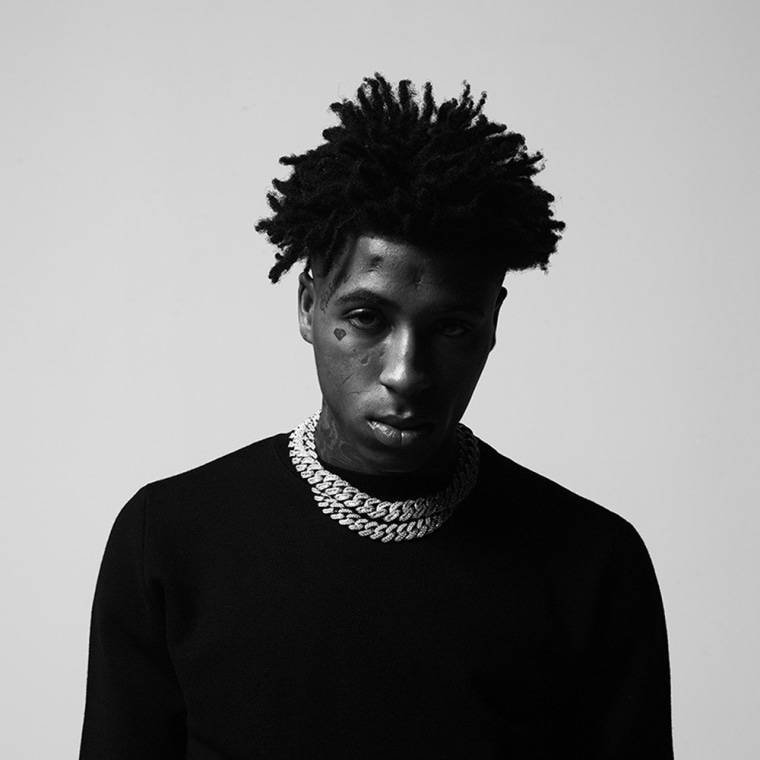Review: YoungBoy Never Broke Again's ‘Top' Is His Most True-To-Self Album Yet

There isn’t a better artist to appeal to the Generation Z rap fan than YoungBoy Never Broke Again. The Baton Rouge rapper is a content machine, releasing projects and singles at a rapid pace as if Spotify’s CEO was serving as his A&R.
His gripping tales of surviving the tumultuous nature of the streets and consequential tortured psyche are unflinching. Such trauma strikes the right balance between the mind of a confused adolescent struggling with depression, anxiety and other mental afflictions. As a result, the raps offer up the pristine voyeuristic escapism into the neighborhoods white suburbanites wouldn’t be caught dead setting foot in.
YoungBoy’s songwriting makes mainstream rap feel dangerous again.
His authenticity has propelled him to the success Boosie possibly could have achieved if he hadn’t gone to jail just as his career was taking off. Now, YoungBoy has notched his third No. 1 album—his second of 2020—with Top, a title that seems like a self-fulfilling prophecy.
Two lanes have led YoungBoy to top the charts: first, the approach he came into the game with: writing songs with catchy hooks reflecting on his troubled upbringing, lawless lifestyle and the trauma that keeps him up at night, like he does on 2019’s AI YoungBoy 2. Then, there’s his recent emphasis on making overly Auto-Tuned lovesick wail fests about heartbreak and his mistrust of love, as heard on 38 Baby 2. Both albums went No.1, making either music strategy viable. Top attempts to blend both approaches, resulting in a middling listen sonically, despite some compelling songwriting.
For much of the record, YoungBoy switches from menacing natural born killer to jilted lover. There’s sparse joy in YoungBoy’s world. At no point during Top does he seem accomplished or even happy.
On “Reaper’s Child,” he worries every woman that enters his life is using him for his wealth and clout. And continuously looks over his shoulder on “My Window,” feeling like his life is marked for an early end despite his status. Lil Wayne chimes in with a vintage performance where he finds a way to keep the topic of a window central to his entire verse with precision.
When he’s not angry or paranoid, YoungBoy tries to indulge in the luxuries afforded to him from rapping by buying fancy cars and clothes. But even in these moments, he laments that he’d rather pay to get his dad home from the pen. Much like Rod Wave: his inner torment never ends.
Songs like “Off Season” exhibit this torture. The production is soulful and matches YoungBoy’s melancholic contemplation of his expensive purchases. For Youngboy, bragging about his materialistic possessions isn’t a flex, nor a brag; it’s a response to the life he was never supposed to have.
He buys Lamborghinis to spite his opps, not because he values luxury automobiles but because the chip on his shoulder forces him to do things because the opportunity could be gone in a second. The Louisianimal spits as if he’s trying to make up for the trauma of his past, but no amount of Gucci will help him forget the horrors of what he’s seen. “Did a jail bid, where my time went,” he asks twice on “Off Season” so the listener clearly understands he’s making up for the years he’ll never get back. “Dirty money spent on Prada I ain’t proud of,” he continues on with a hint of shame.
Moments like this justify YoungBoy’s hype. His ability to articulate the conflicts of his soul and lifestyle in a way that, despite the deep introspection, can still be blasted at the function, is one key to his success.
Half the tracks are dedicated to his ruthless, violent tendencies, which are easy to believe given his history. And that’s not a problem, but you can only explain how you’re going to leave a bro’s brains on the concrete so many times before it becomes tedious. Despite the graphic nature of his bars, it still feels like the majority of his songs fall into the background rather than command attention. The bland and production from the handful of newcomers throughout the album also doesn’t help matters.
Despite its shortcomings, Top reinforces that no matter how famous YoungBoy gets – he’ll always keep it real, something we rarely see in today’s world. We’re conditioned to believe social media is everyone’s unfiltered thought, but really it’s people having control of their own narratives, only showing the parts of themselves they want people to see. But YoungBoy is entirely authentic; whether you agree with his choices or not, there’s nothing performative.
In a world run by algorithms and superstar rappers incessantly promoting fast food, that counts for something.


